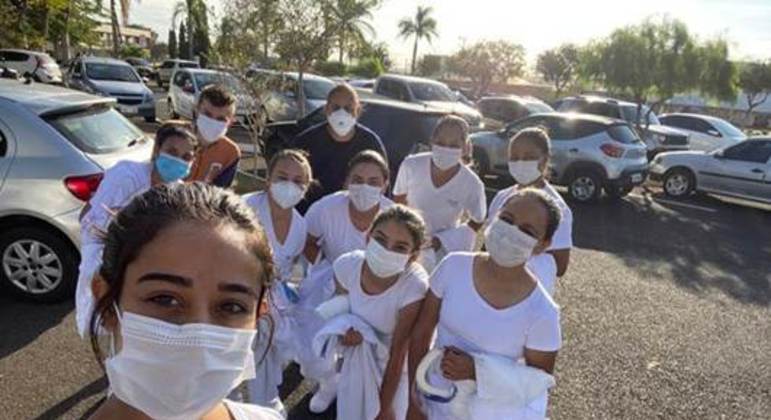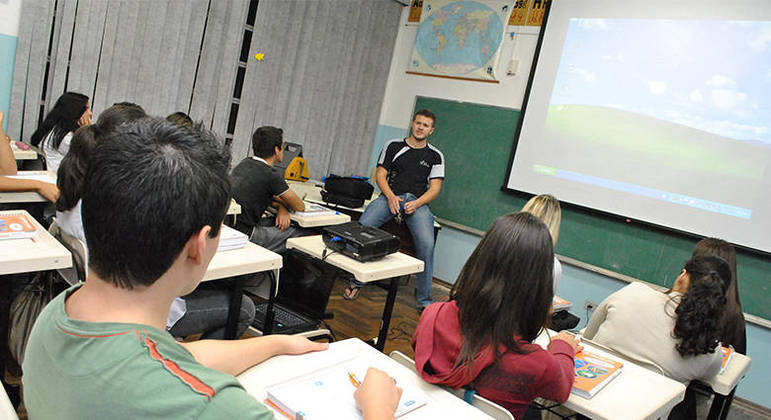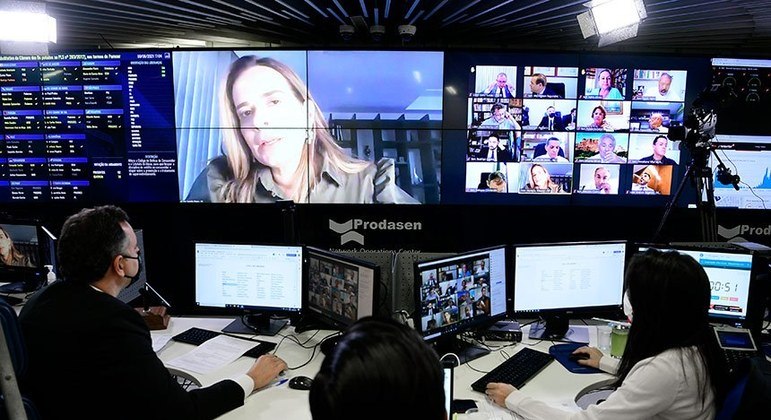[ad_1]
A nearly quarter-century-old partnership between Bard College in New York and St. Petersburg State University came to an abrupt end last month when the Russian prosecutor general’s office designated Bard an “undesirable” organization.
The designation in effect criminalizes Bard in Russia and makes individuals working on behalf of the college in Russia potentially subject to fines or prison sentences of up to six years.
Jonathan Becker, Bard’s executive vice president and vice president for academic affairs, said there’s uncertainty about how the law will be enforced, and it’s unclear whether criminal penalties could apply merely by virtue of being affiliated with Bard — “which is what makes it so dangerous,” he said.
Bard is the first international higher education organization to be branded with this designation. Bard has unusually deep ties in Russia, having partnered with St. Petersburg State in the 1990s to co-found Smolny College, a liberal arts college that offers bachelor’s and master’s degrees from both institutions.
Subsequent to the prosecutor general’s decision, Becker said, St. Petersburg State annulled its relationship with Bard and informed Bard officials that those officials would no longer serve on advisory boards. In addition, Becker said, St. Petersburg State elected not to award Bard diplomas to the 142 students who had earned them during the graduation ceremony that happened last weekend (he said students still got their degrees from St. Petersburg State).
“From its original conception, it was a dual degree program,” said Becker. “In addition to a multiplicity of student exchanges, faculty exchanges, conferences and research together, it was a dual degree program in which Russian students were awarded degrees of St. Petersburg State University and of Bard College and which therefore served as a platform for a plethora of venues of cooperation between the United States and Russia through Bard. Students from more than 50 U.S. colleges and universities studied in Russia, and at Bard we hosted 60 to 70 Russian students each year for semester or summer programs. Through this cooperation we created, for example, conferences which united the F.D.R. presidential library and the Boris Yeltsin presidential library and held conferences on liberal arts and sciences education and did research together. This was a multifaceted, multilayered program that had been going on for nearly a quarter century.”
In addition to bringing the St. Petersburg partnership to an end, Becker said the Russian prosecutor’s designation also raises concerns about potential implications for Bard faculty and students who travel to Russia for other academic purposes, such as conferences or study abroad.
“The truth is right now the law is very ambiguous on many of the issues that affect how regular academic interactions occur,” Becker said. “How the law is understood and will be enforced is unclear. We know there are certain things that we cannot do, but we don’t know the absolute scope of this.”
“This is how this is such a blow to academic freedom,” Becker added. “It would be one thing to say Bard College should not partner with a Russian institution, which would be incredibly difficult and sad. It’s another thing to label us as an ‘undesirable’ entity. The wide implications of that are less clear.”
The Russian prosecutor’s office did not give a reason for why Bard was deemed undesirable, saying only in a state media report that its activity “threatens the constitutional order and security of Russia.” The Russian Embassy in the U.S. did not return requests for comment.
Some have speculated Bard’s deep relationship with billionaire financier George Soros and the nonprofit he chairs, the Open Society Foundations — which is also banned in Russia as an “undesirable” NGO — might have played a role, though Becker noted that St. Petersburg State opened a representative office at Bard as recently as last year after Bard had already received a $60 million gift from the Open Society Foundations (Becker said that the college has not spent any OSF funds in Russia since the organization was banned there).
Internal Russian political factors may also be at play. Alexei Kudrin, a former finance minister under President Vladimir Putin, served as dean of Smolny and had taken steps in recent months to separate the college from St. Petersburg State and establish it as an independent institution.
Sam Greene, a professor of Russian politics and director of King’s Russia Institute at King’s College London, said on Twitter that this was “clearly a shot across Kudrin’s bow.”
Greene said in an interview that he was both surprised and not surprised by Bard’s designation.
“The Russian government has been moving for a number of years to reduce what it sees as the ability of various foreign organizations to influence Russian society,” Greene said. “The vultures had been circling the higher education sector for some time, putting pressure on some of the more internationalized and maybe liberal-minded institutions and also going after a lot of the funding sources, particularly funding sources that had what you might think of as a political profile. A number of years ago, it became impossible for the Open Society Foundations and the MacArthur Foundation and others to fund research and academic exchange.”
“The fact that having cleaned out much of the landscape they would eventually notice that there was this project going on involving Bard — there aren’t a lot of similar projects in Russia — it was probably only a matter of time before someone took notice,” Greene said. “What was surprising was they would take the step of declaring an entire foreign institution of higher education an undesirable organization.”
“We’re talking about several thousand people who are now outside the pale of Russian law,” Greene continued. “We don’t know what the consequences of that are going to be either for faculty and students at Bard or for exchange between Russian and Western universities more broadly. Does this force Western universities to rethink their relationships with Russia?”
Becker said his view is the government’s action is “fundamentally rooted in a falling apart of U.S.-Russian relations.” He said there have been other tense moments over the years, “but by focusing on education, we had managed to avoid the worst impulses of politics until now.”
“Through thick and thin, we have stayed together as partners, and through ups and downs in U.S.-Russian relations,” he said. “For this to happen now is very saddening and disappointing for current students and graduates and people who have studied on exchange programs.”
Ryan Fedasiuk is one of those students who is disappointed. Fedasiuk, now a master’s student at Georgetown University, participated in an exchange program at Smolny in 2018 while an undergraduate at American University.
“Over all, it was very positive. I learned a tremendous amount about Russian culture, language and the worldview of my Russian peers at St. Petersburg State University,” Fedasiuk said. “I connected with students and asked questions about how they perceived current events in international relations, I stayed with a host family the entire time, so for example [when] there were flare-ups in international relations between Ukraine and Russia in the Black Sea in fall 2018, I got to debate them on some interesting issues. There were experiences that really formed my view of Russia and international relations more broadly. I think it’s a shame that the program is no longer allowed to operate there.”
[ad_2]
Source Link






